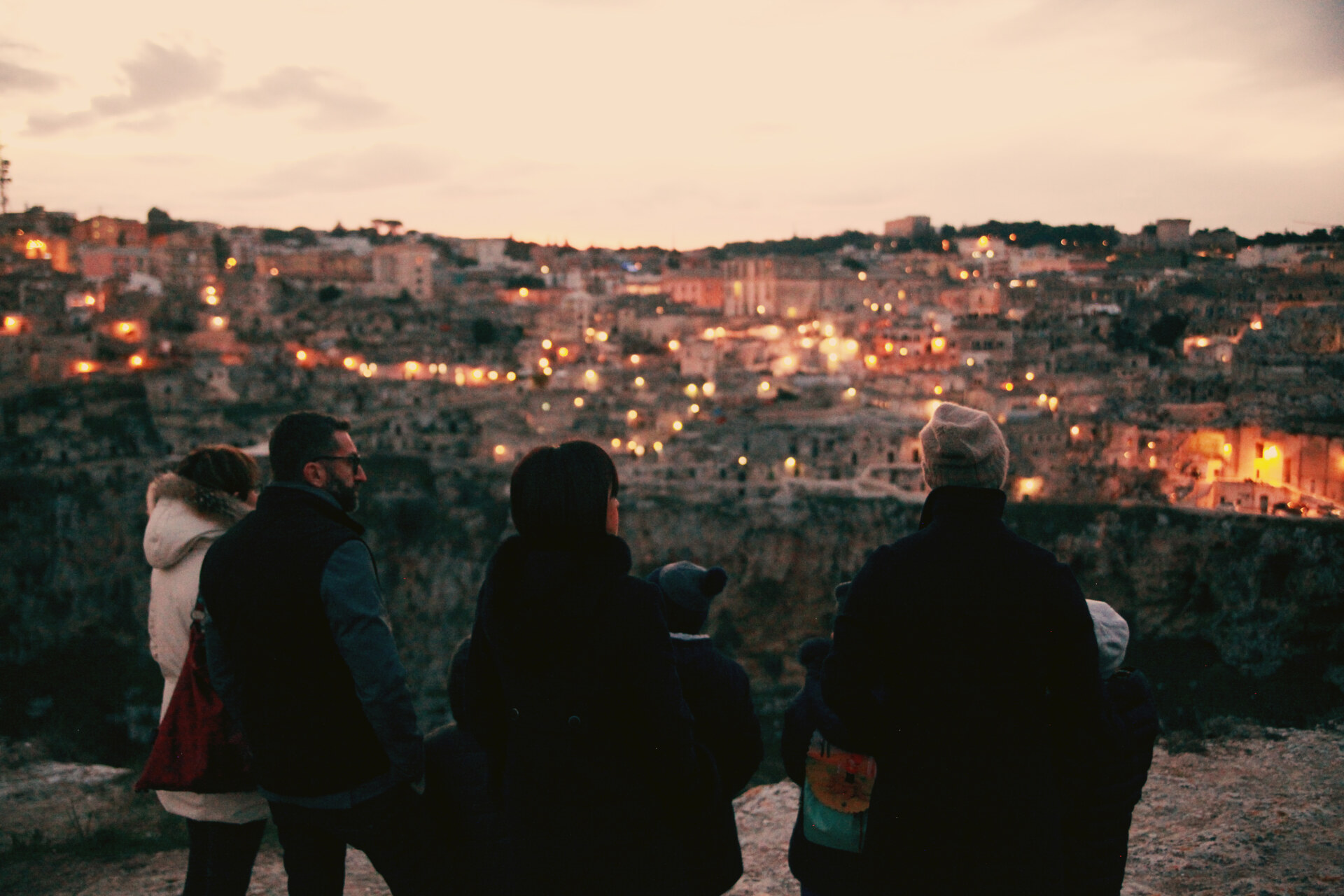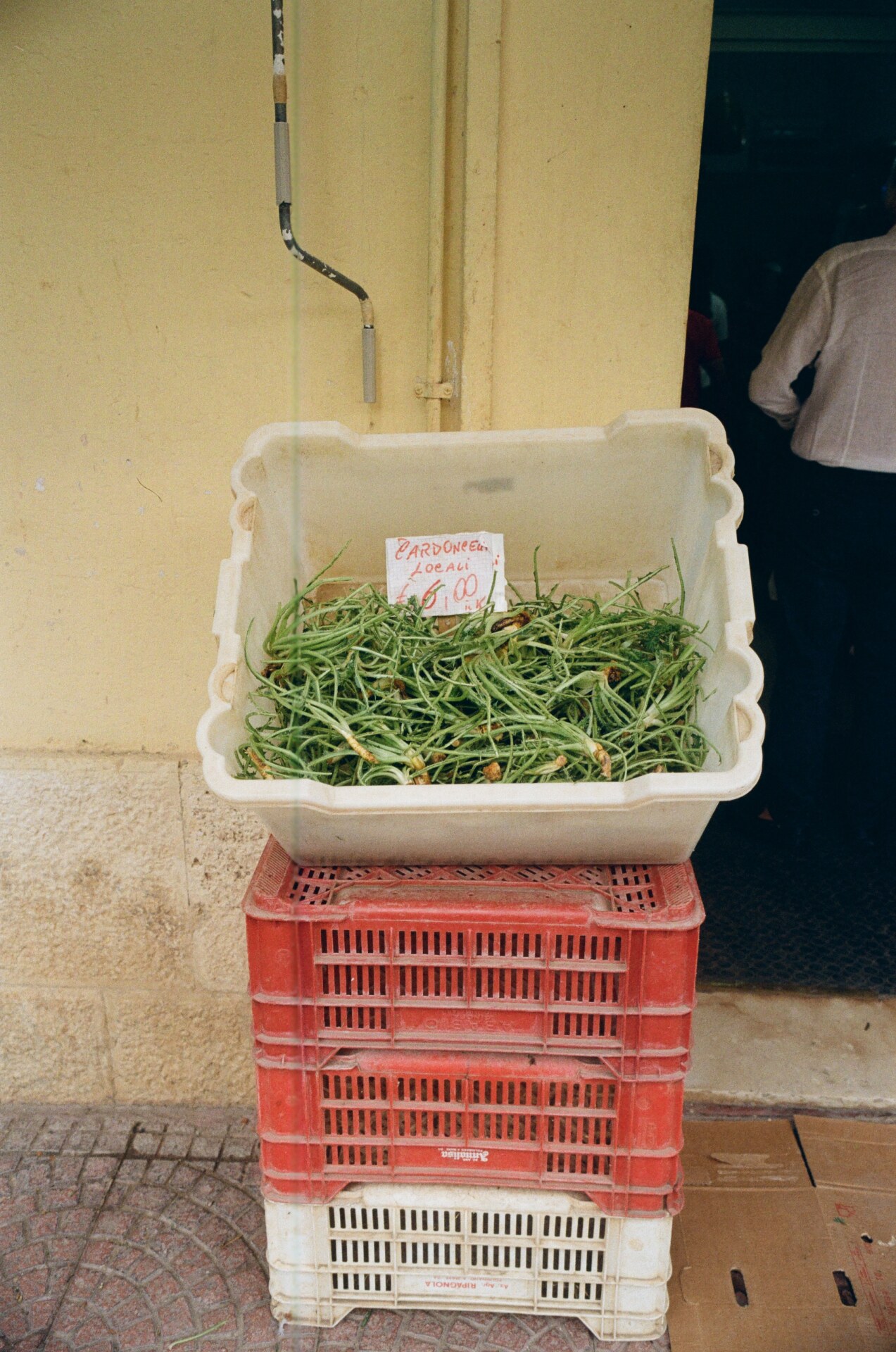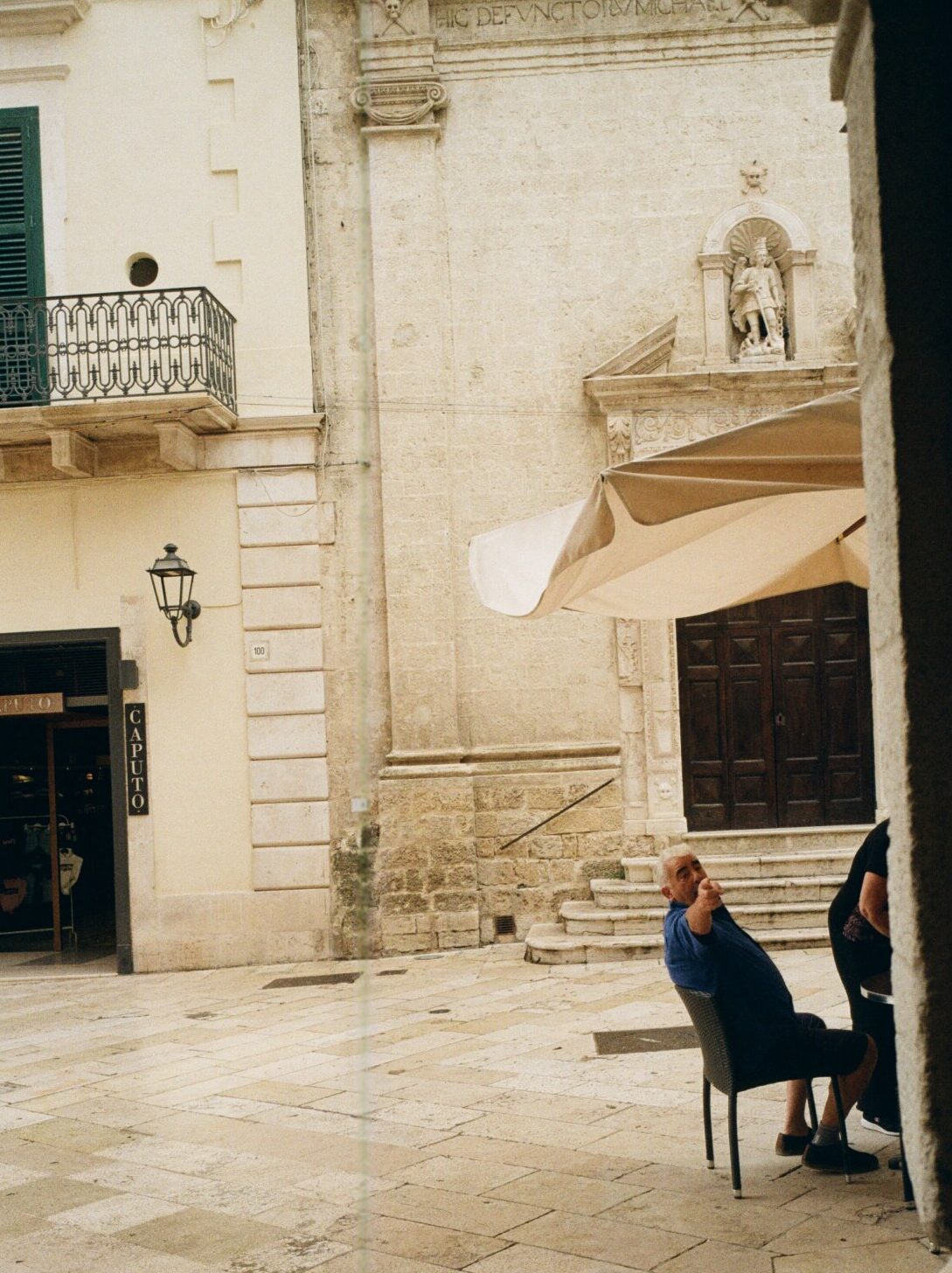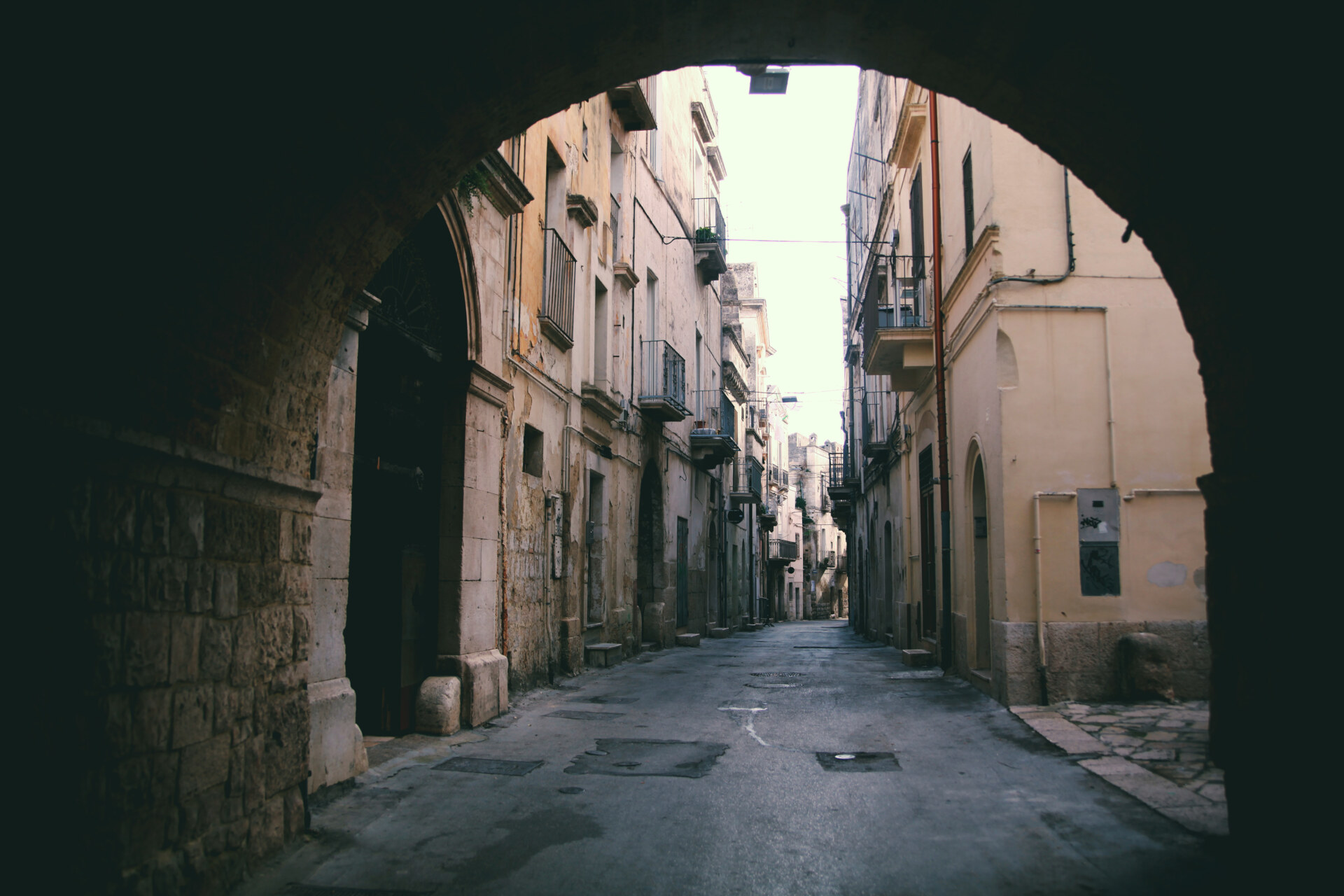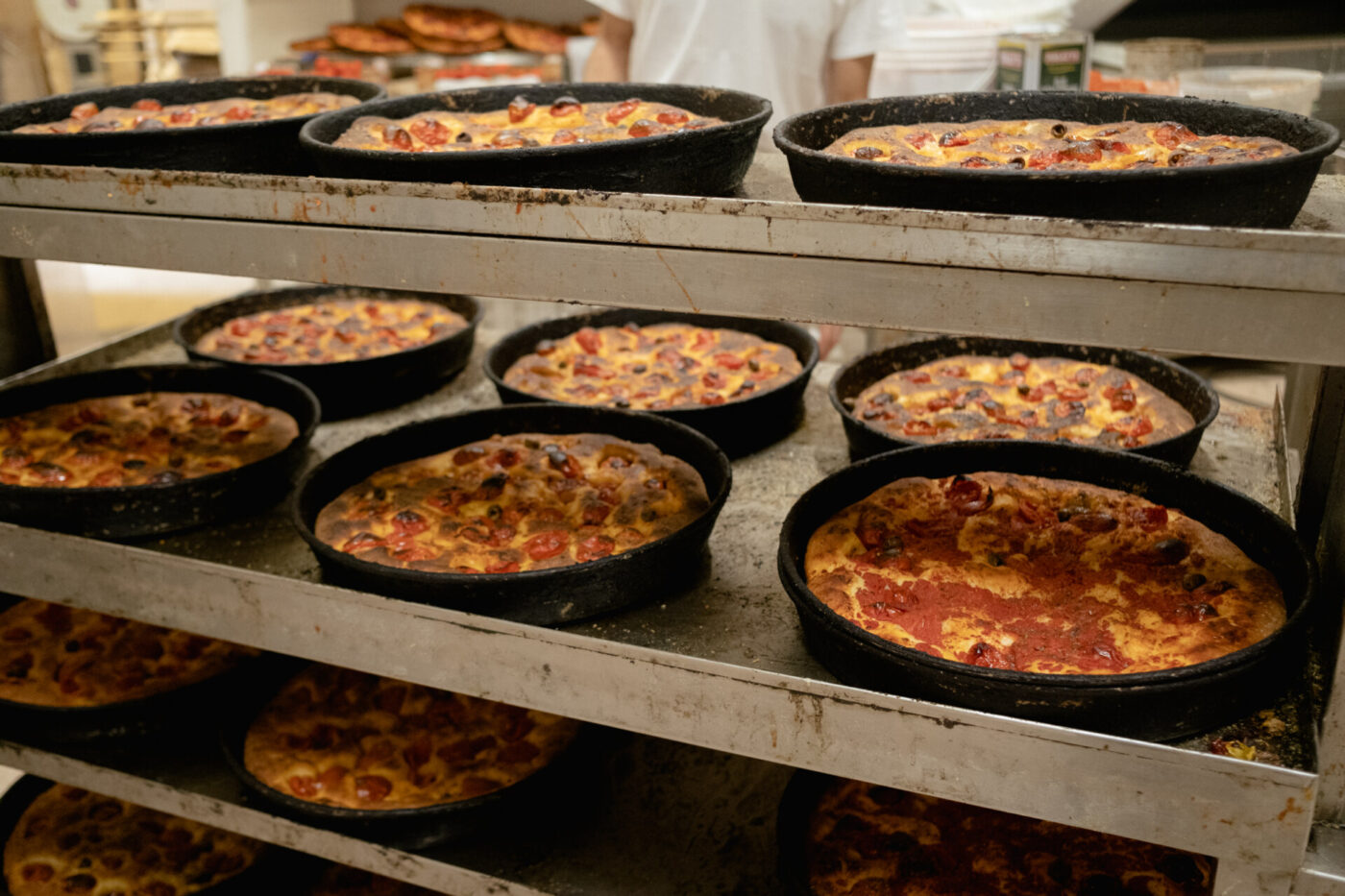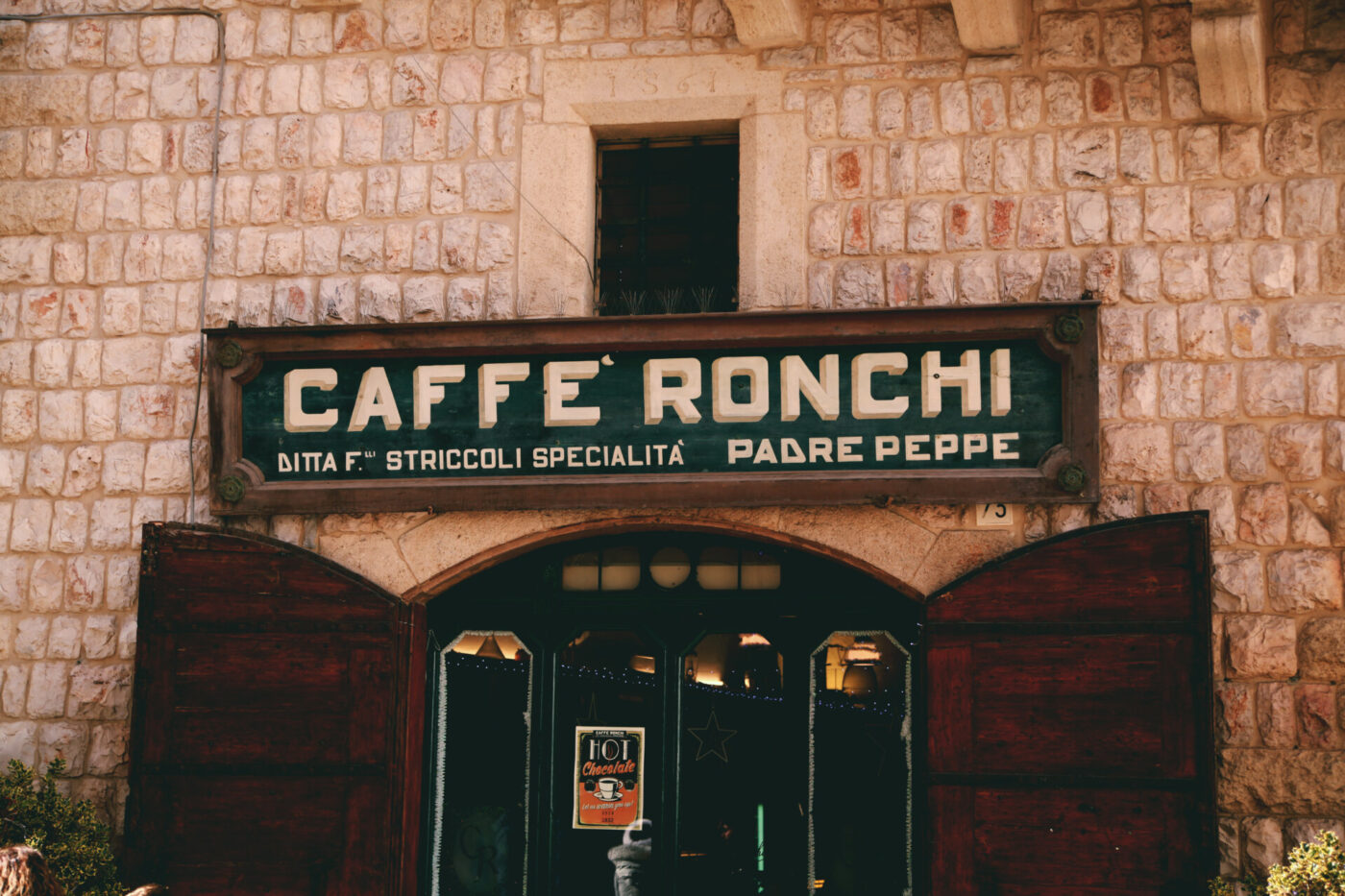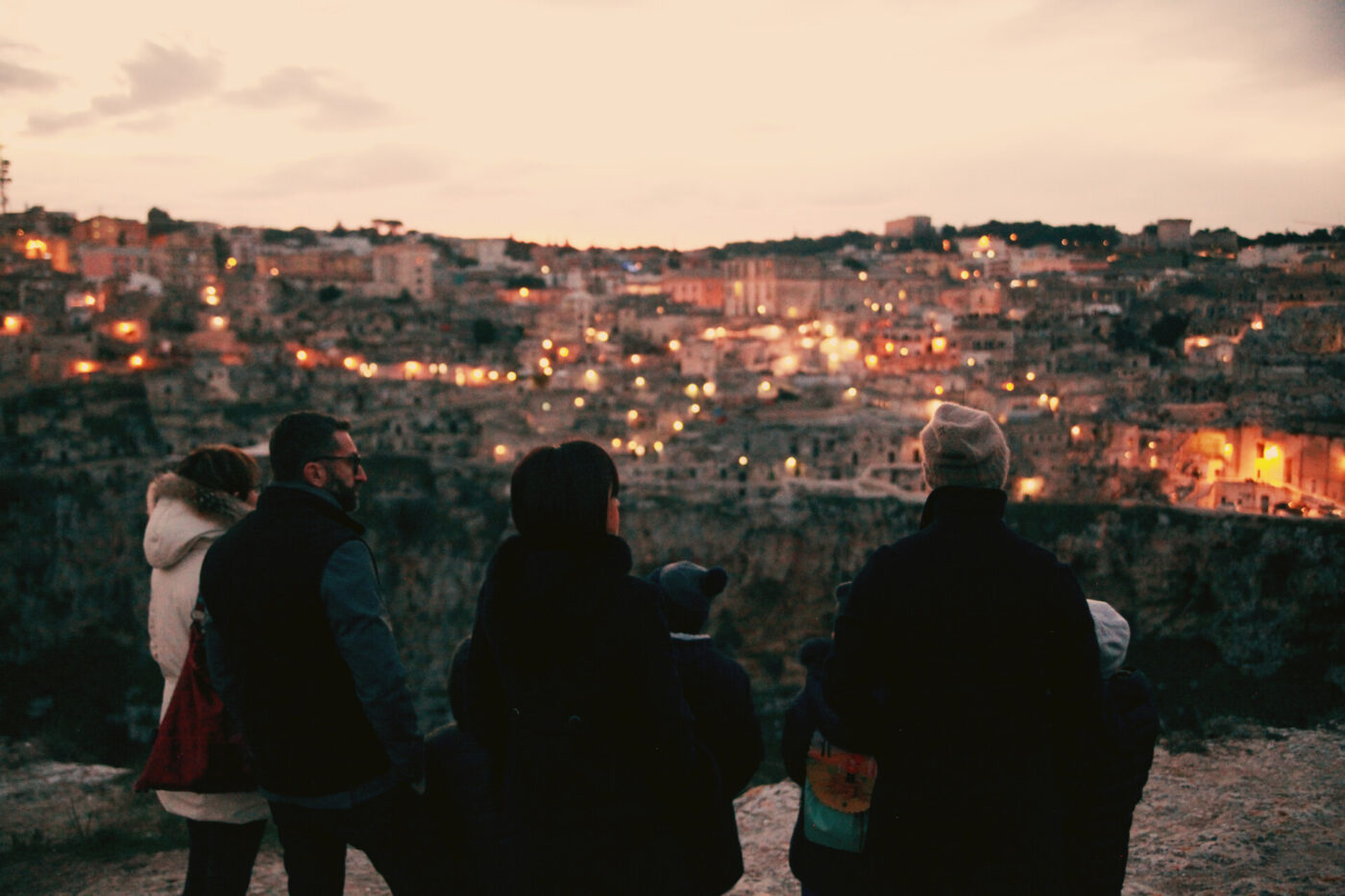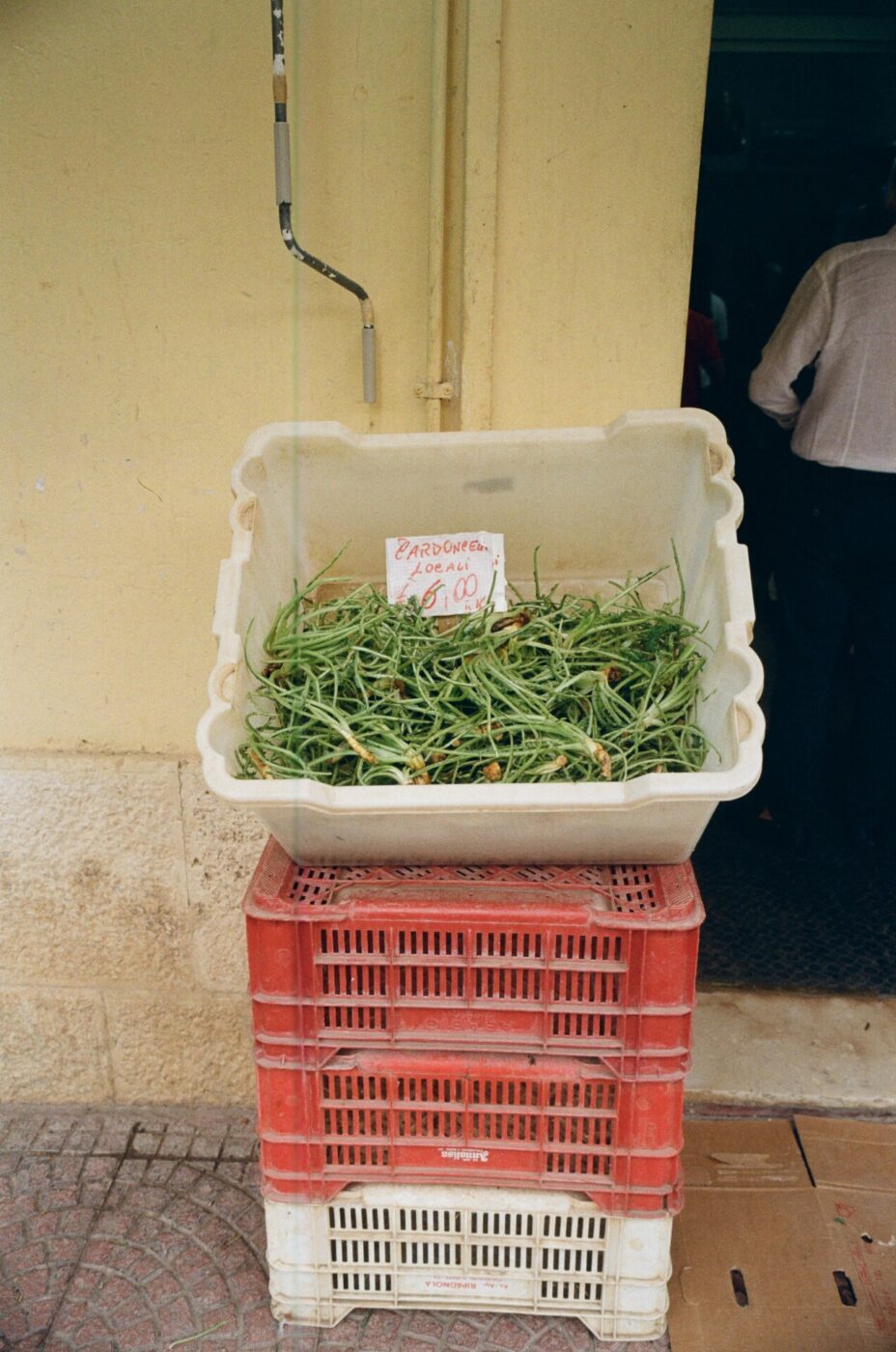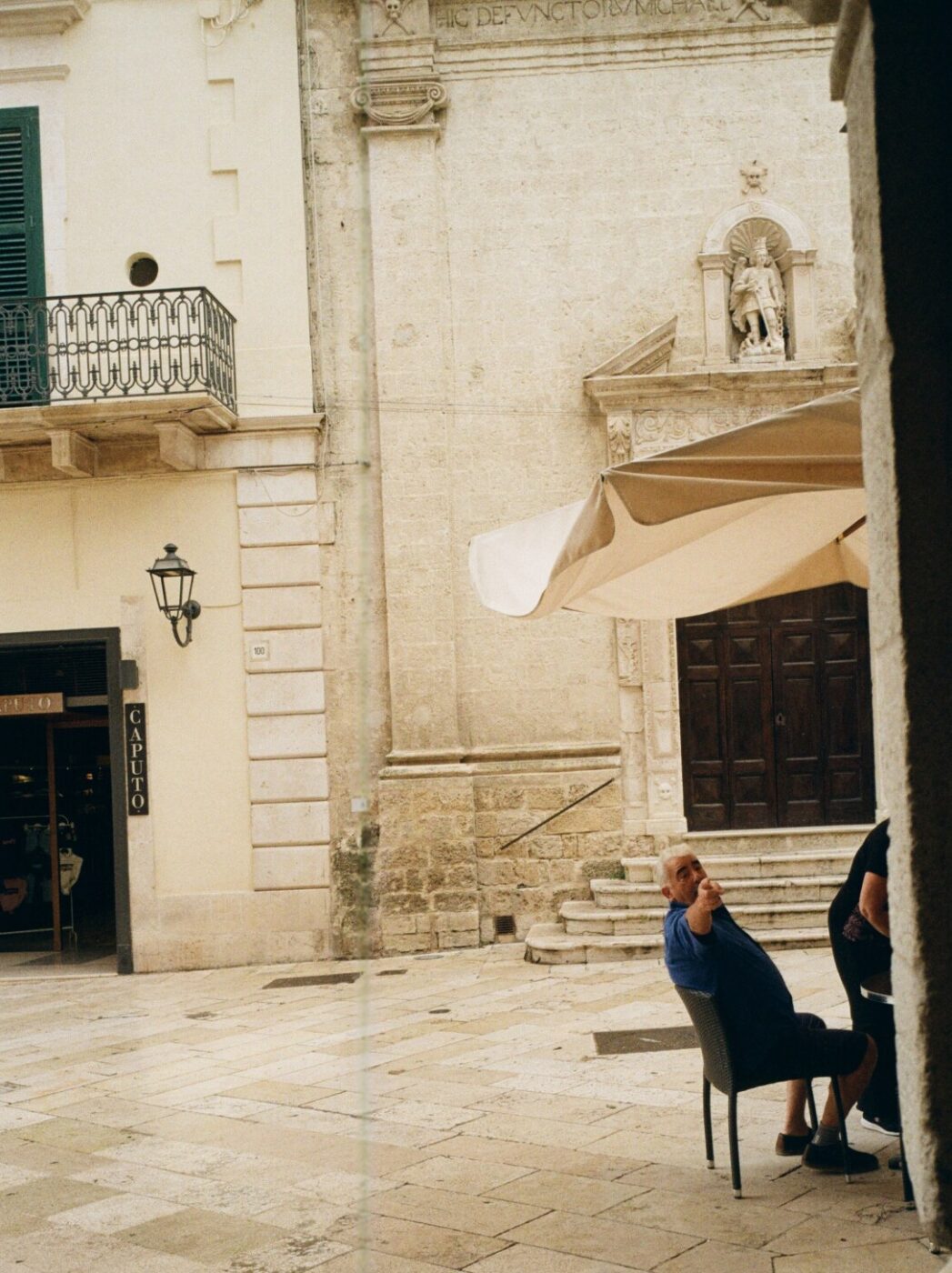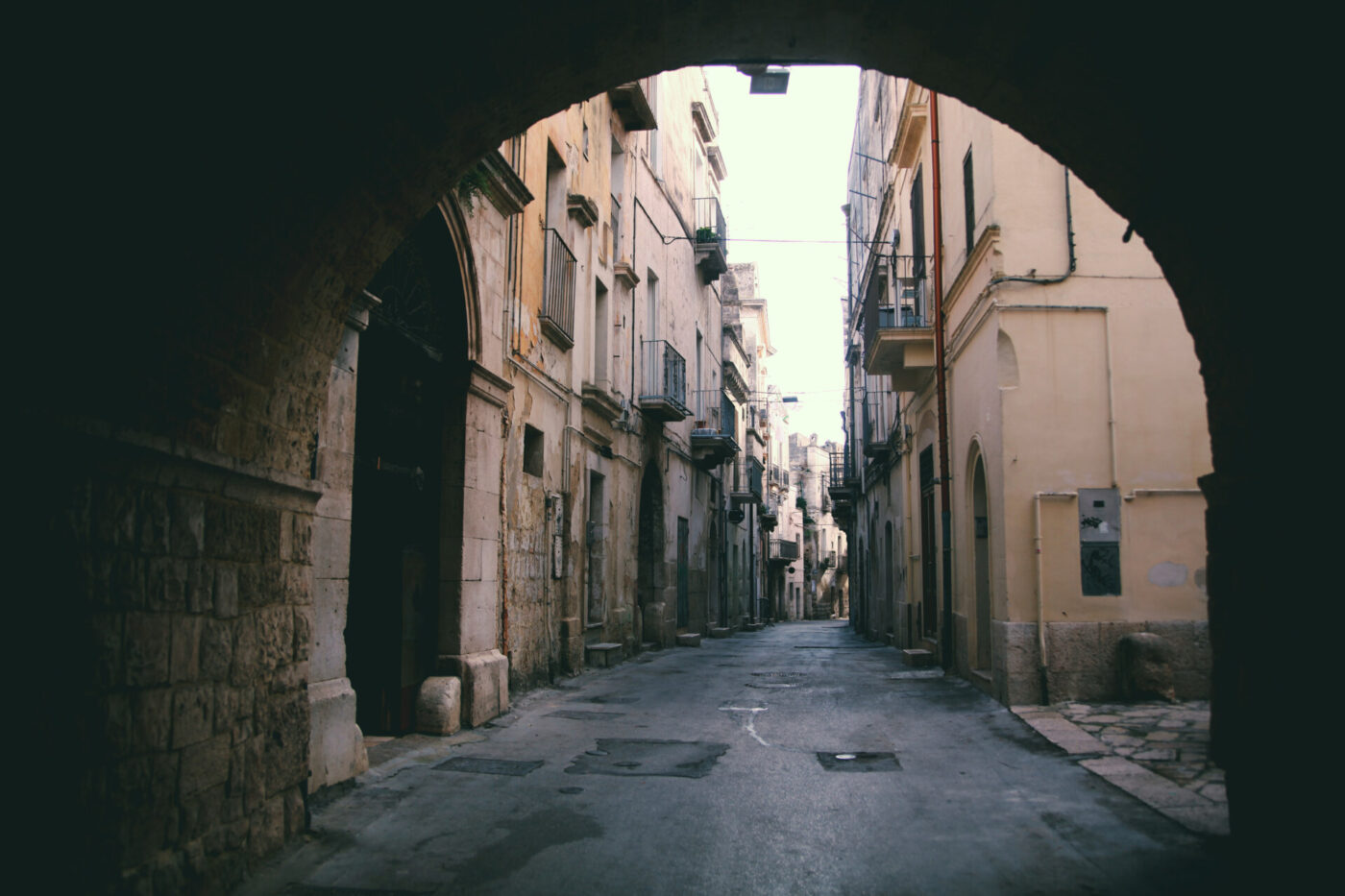I got off my flight in Bari around 8 PM on November 27th, 2017. Gerardo, my soon-to-be host dad, texted me saying he was waiting outside, but the kids were already asleep at home. My heart started to flutter with excitement. Gerardo, his wife Angela, their three kids and I had been video chatting for three months leading up to this moment, this moment when I would join their family as an au pair for the winter. I was 25, in the middle of pursuing some half-baked musical aspirations in Los Angeles, when I’d decided I needed to pull myself out of my routines and reconnect with Italy, even just for a few months, to immerse myself in the language and culture I missed so since I had studied abroad in Florence five years prior. I grabbed my suitcase off the carousel and hastily walked out of the double doors, scanning the crowd for the face I’d gotten so used to seeing on my phone’s screen.
“Shab! Shab! Stavamo scerzando! Siamo qui!” (“We were joking, we’re here!”)
Three little faces came crashing towards me, laughing at the prank they’d pulled pretending they were fast asleep at home. Six little arms wrapped me in a bear hug as if I were their long-lost American cousin they’d been waiting to meet for generations.
They pulled me excitedly outside to load their car, two of them fighting for a seat on my lap for the ride to Altamura, their hometown, a small city on one of the hills of the scrubby Murge plateau, 45 kilometers southwest of Bari and near the Basilicata border. We roamed inland away from the sea, by fields of olive trees and through the typical rocky landscape of the region. I let myself sink into the back seat, enamored by the witty back and forth between the family members, as I watched the fields of dairy farms zoom by under the night sky on our way to my home for the winter.
The 75 days that ensued felt like a lifetime. Quickly and fiercely, they made me a part of the family, and Altamura became mine. The walled, ancient city center dating back to the 10th century became my playground, and though the city counts around 70,000 inhabitants, what made this place so magical was the close sense of community I could feel even as a foreigner.
The first weekend was someone’s great-aunt’s 100th birthday, and we dined with a few hundred family members in an old horse barn outside the city. No one questioned my presence and hugged me hard anyway.
On weekends, we would lunch at a grandparents’ house where the TV was always loud, the tablecloth was always lace, and grandpa would always offer a digestivo shot of nocino after the meal.
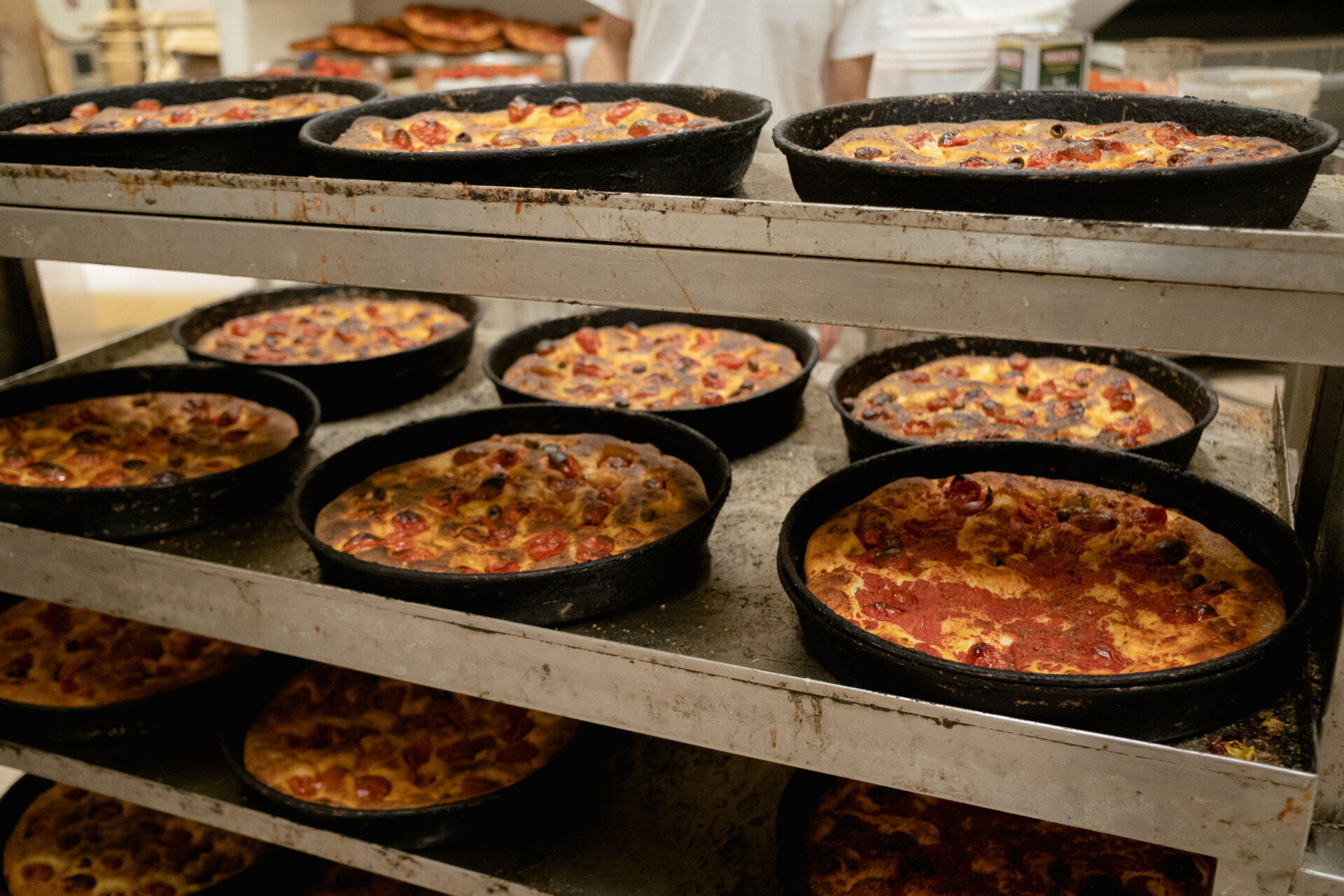
My host parents were only about a decade older than I was, so it became quickly apparent we could be more like long lost cousins.
Every so often my host mom, Angela, would take me on her girls’ nights out. We would get dressed up and go eat sushi and drink wine with her friends. I don’t remember if I ever had anything to say, but it was nice to feel included.
Gerardo, my host dad, was a very busy man–an entrepreneur and professor, he was always on the phone or sifting through a briefcase, running in and out the door and flying up to and down from Milan. But no matter what, he was home for lunch on the dot and for dinner too.
The kids taught me how to make capunti pasta, a traditional handmade Apulian pasta shape made by dragging strips of dough with three fingers to hollow it out. Made with just semolina durum wheat flour, water and salt, the pasta’s slightly rough texture makes it ideal for holding onto sauces. Capunti are believed to date back to 11th century rural Puglia. It’s a recipe I have now replicated over and over.
The mom slyly fed me a horsemeat hamburger (which remains to this day the best burger I’ve ever had, sorry!), and I learned that Italy is the largest European consumer of the stuff.
I would sit in the back of the car with a couple kids on my lap as we drove the five minutes to Caseficio Dicecca to grab the weekend’s stracciatella and mozzarella, and around the corner to Paneficio DiGesu for a focaccia that would all surely be gone by Monday.
On pizza nights, they would invite their friends over and grab a few packs of beer. The kids would start playing hide-and-seek, and of course I would be nominated to be the one counting and seeking. Shrill giggles and slippery socks ran around the bedrooms before dinner. When the kids would grab their juice boxes, I would grab a beer and sit with the adults for a breather before the next round of freeze tag or red-light-green-light. It was through these games that we became family, as I was transported back to my own childhood summers.
On Sundays we would walk up the hill to the Romanesque church at 11 AM and stroll up and down the corso, the pedestrian street that runs through the old city center. The strolling would take at least a couple hours and include an espresso or a San Bitters aperitif at Caffè Ronchi. The kids would run around the piazza with classmates they would find, while the adults caught up about life since last week’s stroll. The corso was always bustling, and nobody was in a hurry. At 1 PM sharp the crowds would disperse, each to their own homes, for a long lunch. Sundays quickly became my favorite.
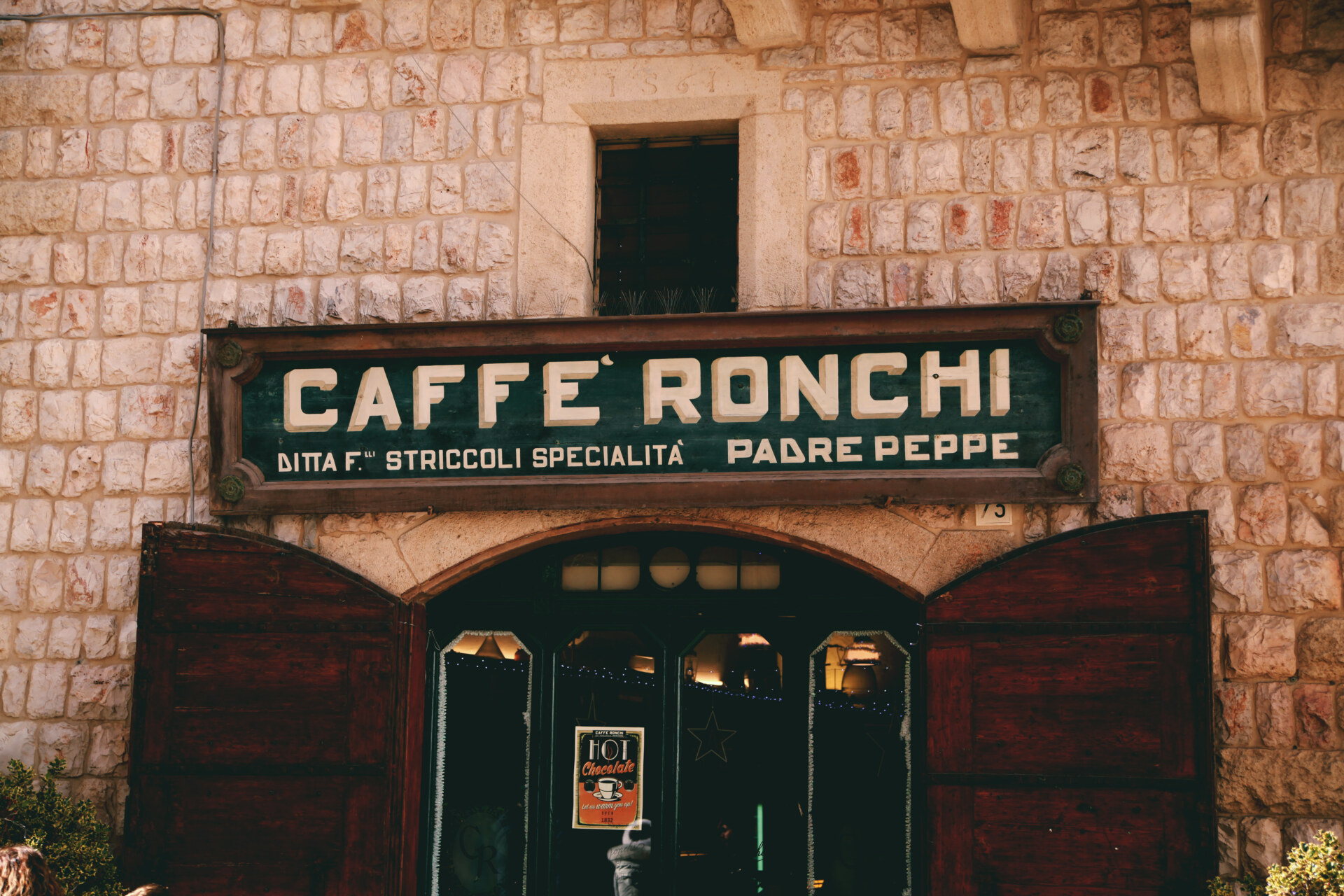
The kids are teenagers now.
I landed back in Bari at 11:30 PM on September 16th, 2022 for the first time in almost five years, curious about how I would feel. Would the kids remember me? Would they have missed me like I had missed them? Would the town remember me like I remembered it?
At the airport, Gerardo met me alone and gave me the same big hug he gave me last time. On the drive home past the dairy fields under the same night sky, he filled me in on the kids’ current pre-teen lives. Cell phones, summer flings, intense dance recitals and weekend basketball games. They didn’t even need a nanny anymore.
But the following four days felt like nothing had changed. The kids were respectively as sweet, goofy, bold and poised as before.
On Saturday, I sat in the piazza with Gerardo before lunch, drinking a crodino, a non-alcoholic bitter aperitif, and chatting about the complexities of southern Italian culture as an old friend rode by on his bike and stopped for a hug. That evening, I walked arm in arm with my host dad’s sister as we grabbed gelato at the little shop she frequented growing up and ran into more family on the other side of town.
This time, I wasn’t just the only American in Altamura. I was home, and what a privilege to have a home in a corner of the peninsula that was never mine to begin with.
